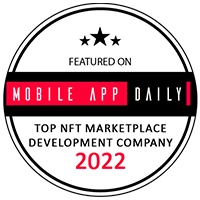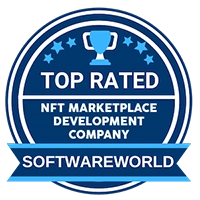Introduction: The Game-Changing Role of AI in Influencer Marketing
In simple terms, influencer marketing is the modern-day word-of-mouth, but supercharged. Instead of relying on friends or family to recommend products, brands collaborate with individuals who already have a large following on platforms like Instagram, TikTok, or YouTube. These influencers have the ability to sway their followers' opinions, and when they endorse a product, their audience listens. It's like having a trusted friend give you advice, but this friend has millions of followers.
But why does influencer marketing work? Well, it's because people trust people more than they trust brands. An authentic recommendation from a real person feels far more genuine than a direct advertisement. When done right, influencer marketing can connect brands to highly engaged audiences, drive sales, and create meaningful relationships between consumers and companies.
Automation in Influencer Marketing: Unlocking Efficiency
Why Automation Matters for Brands Today
Let's be honest—marketing can be tedious. With so many tasks on your plate, it's easy to get bogged down with repetitive work like sending out influencer emails, tracking posts, or managing campaigns across multiple channels. This is where AI-powered automation swoops in to save the day.
For marketers, automation isn't just a convenience; it's a necessity. Automating influencer marketing allows brands to focus on the bigger picture—like developing creative campaigns and building long-term relationships with influencers. It also means fewer mistakes, faster processes, and more room for creativity. In a world where time is money, AI-driven automation is the golden ticket to efficiency.
AI in Influencer Discovery: Finding the Perfect Fit
Finding the right influencer can feel like searching for a needle in a haystack. There are thousands of influencers out there, but not all of them align with your brand. This is where AI comes in, acting like your personal matchmaker. AI algorithms sift through mountains of data—looking at everything from follower demographics to engagement rates—to pinpoint influencers who align perfectly with your brand's values, audience, and goals.
It's like having a talent scout who never sleeps, always finding you the best talent that fits your unique needs. Tools like HypeAuditor and Klear use AI to not only find influencers but also ensure they are authentic, which is key in avoiding influencers with fake followers or low engagement.
Simplifying Influencer Outreach with AI
Once you've found your ideal influencer, the next step is outreach. Traditionally, this involves sending countless emails, negotiating contracts, and managing the relationship over time. But AI can automate much of this process, too. AI tools can help craft personalized outreach messages, schedule follow-ups, and even negotiate terms based on previous influencer collaborations.
This means less time spent chasing influencers and more time strategizing. And because AI can handle these tasks at scale, brands can now work with multiple influencers across different campaigns without feeling overwhelmed.
Campaign Management Made Easy
Managing an influencer marketing campaign can feel like juggling plates—one wrong move, and it all comes crashing down. AI is like having an extra set of hands. It monitors influencer activities, ensures deliverables are on track, and keeps everything running smoothly across multiple channels.
AI-powered platforms can track everything from when an influencer posts content to the number of likes and shares a post receives. And because these tools work in real-time, brands can address any issues immediately—whether it's a missing post or an off-brand message.
Real-Time Reporting and Performance Tracking
AI doesn't stop at campaign management; it also helps with reporting. Traditional reporting methods often require manual data entry and analysis, which can be time-consuming and prone to human error. AI-powered reporting tools change the game by providing real-time analytics and performance insights.
Imagine being able to see exactly how your campaign is performing, from engagement rates to ROI, in real-time. AI analyzes all the data and delivers insights that help brands refine their strategies on the go. It's like having a crystal ball that tells you what's working and what's not, allowing for quick adjustments that can maximize your campaign's success.
Audience Targeting: Reaching the Right People with Precision
AI and Audience Segmentation: Precision Targeting Like Never Before
Let's face it—reaching the right audience in influencer marketing can feel like trying to hit a bullseye in the dark. You've got all these influencers, but how do you know who resonates best with your brand? This is where AI steps in, turning on the lights and giving you laser-sharp precision.
AI can analyze mountains of data faster than any human could—demographics, interests, online behaviors, purchase patterns, and even social media interactions. By processing this data, AI helps brands segment their audiences more accurately than ever. Imagine knowing not only who your audience is but what they care about, where they hang out online, and how they engage with influencer content. This level of insight means that your influencer campaigns land in front of the right people at the right time, making your marketing dollars work smarter, not harder.
Building Effective Buyer Personas with AI
Creating a buyer persona used to involve some guesswork—maybe a survey here, a focus group there. Now, AI is like your secret weapon for building incredibly detailed buyer personas. By pulling insights from multiple data sources—such as social media behaviors, website interactions, and customer feedback—AI can help you paint a crystal-clear picture of who your customers are.
This data-driven approach allows brands to create more accurate and relevant buyer personas. Whether you're marketing to fitness enthusiasts or tech geeks, AI ensures that your influencer content speaks directly to your target customers' needs, interests, and pain points. It's like having a personalized blueprint for every segment of your audience.
Hyper-Personalized Influencer Campaigns
Gone are the days of one-size-fits-all marketing. Thanks to AI, brands can now create hyper-personalized influencer campaigns that make their audience feel like the content was made just for them. How does this work? By using the data collected through audience segmentation, AI can help brands tailor messaging, visuals, and offers specifically to each segment of their audience.
Imagine you're promoting a new line of eco-friendly products. AI can help you segment your audience into eco-conscious consumers, bargain hunters, and trend-followers, each with their own personalized message and influencer. The result? Content that feels more relevant and resonates on a deeper level, leading to higher engagement rates and better overall campaign performance.
Optimizing Audience Engagement Through Predictive Analytics
Wouldn't it be amazing if you could predict which parts of your audience are most likely to engage with your influencer content? Well, with AI, that's exactly what you can do. AI-powered predictive analytics tools look at historical data to forecast future engagement patterns.
These tools analyze which influencers, topics, or content formats resonate most with specific audience segments. This allows brands to optimize content delivery, ensuring that the right message gets to the right people at the right time. It's like having a crystal ball that tells you where to focus your efforts for maximum impact, leading to smarter campaigns and better results.
Ready to Supercharge Your Influencer Marketing with AI?
Contact UsContent Optimization: Making Every Post Count
AI in Content Creation: From Idea Generation to Execution
Let's be honest—coming up with fresh content ideas for influencer campaigns can be exhausting. Sometimes the creative well runs dry, and that's where AI steps in to give you a boost. AI-powered tools can take the pressure off by helping you brainstorm new content ideas based on trends, audience preferences, and even competitive analysis.
Not only that, but AI can assist in crafting the actual content, whether it's a blog post, Instagram caption, or even a video script. Tools like ChatGPT can generate engaging copy, while platforms like Lumen5 can help create eye-catching visuals. It's like having a creative assistant who's always on standby, ready to take your content from concept to execution in no time.
Crafting the Perfect Caption with AI
Let's face it—sometimes writing the perfect Instagram caption can feel like trying to write a novel. You want it to be catchy, informative, and persuasive—all within a few lines. AI tools like ScripAI are game-changers in this area. These tools analyze successful captions and engagement data to help influencers and brands craft copy that's designed to perform well.
Whether you're aiming for something witty, heartfelt, or informative, AI can provide suggestions to ensure your caption hits the right tone. It's not about replacing creativity; it's about enhancing it. With AI's help, you'll have a caption that not only fits your post but also drives engagement.
Keyword and SEO Optimization for Influencer Posts
If you're not optimizing your influencer content for search engines, you're leaving traffic—and potential sales—on the table. AI tools can help brands and influencers identify high-value keywords that should be included in their posts to maximize visibility.
Think of it this way: Just as you wouldn't open a store in the middle of nowhere, you wouldn't want your content to be buried online. AI tools like SEMrush or Surfer SEO help optimize influencer posts by analyzing search trends and suggesting the best keywords to include. This ensures that your content ranks higher, gets more eyes on it, and ultimately leads to more conversions.
Optimizing Visual Content with AI
Visuals are everything in influencer marketing. Whether it's an Instagram post, YouTube thumbnail, or TikTok video, if the visual doesn't grab attention, it's game over. AI can analyze audience preferences and current trends to help influencers create visuals that truly resonate.
AI-powered tools can suggest color schemes, layouts, and even the best times to post for maximum engagement. With this level of insight, influencers can create content that not only looks great but is also designed to perform well with their audience. It's like having an art director in your pocket, ensuring that every post is visually on point.
Automated A/B Testing for Influencer Content
Want to know what works best? Test it. But A/B testing can be tedious if you're doing it manually. This is where AI shines. AI automates the A/B testing process by analyzing different versions of content—whether it's captions, visuals, or calls-to-action—and determining which one performs best with your audience.
For example, AI can run tests to see if a humorous caption drives more engagement than a serious one, or if a photo in natural lighting gets more likes than one with heavy filters. Once the results are in, AI provides actionable insights, so you know exactly what resonates with your audience. It's like having a behind-the-scenes coach guiding your influencer marketing to victory.
AI and Influencer Authenticity: Building Trust with Real Data
Detecting Fake Followers and Engagement with AI
Ever heard of the phrase "not everything is as it seems"? Well, that's true for influencer marketing too. Some influencers may appear to have massive followings, but dig a little deeper, and you'll find a chunk of those followers are fake or bots. This is where AI comes in as your behind-the-scenes detective. AI-powered tools like NeoReach and HypeAuditor are designed to sniff out fake followers and inflated engagement. Think of them as digital watchdogs, ensuring you don't waste your marketing budget on influencers who don't have real influence.
These AI tools analyze everything—from follower growth patterns to engagement rates and even the authenticity of comments. They can tell if an influencer's engagement is genuine or if it's being propped up by bots and fake accounts. By leveraging AI, brands can ensure they're partnering with influencers who have authentic, engaged audiences, rather than wasting money on influencers with hollow numbers. It's like hiring a private investigator to vet your partnerships before you commit.
The Rise of Virtual Influencers
Here's something straight out of a sci-fi movie: influencers who don't even exist in real life. Welcome to the world of virtual influencers, where AI-generated personas—like Lil Miquela—are taking over social media feeds. These virtual influencers, created using a mix of AI and CGI (computer-generated imagery), offer brands a unique way to engage with audiences while maintaining complete creative control.
Unlike human influencers, virtual influencers can be molded to fit any brand message, and there's no risk of them getting caught up in scandals or delivering off-brand content. These virtual personalities offer guaranteed reach and engagement because their "behavior" is entirely orchestrated by AI. Brands like Prada and KFC have already jumped on the virtual influencer bandwagon, and it's clear this trend is only going to grow. Imagine an influencer who never has a bad day or goes off-script—brands love that level of reliability.
Ensuring Authenticity in Influencer-Brand Partnerships
Authenticity is the secret sauce that makes influencer marketing work. But how can you be sure an influencer is a genuine fit for your brand? AI tools make this process seamless. Platforms like Klear and HypeAuditor not only analyze an influencer's follower base but also dive into demographics, interests, and engagement trends to ensure that the partnership is authentic.
AI ensures that brands aren't just throwing money at influencers with large follower counts but instead are investing in influencers who genuinely resonate with their target audience. By analyzing engagement data, follower authenticity, and even previous brand collaborations, AI helps brands build partnerships that feel natural and authentic to the audience. It's like having a matchmaking service for brands and influencers, ensuring you only get matched with someone who truly aligns with your values and goals.
Maximizing ROI with AI-Driven Performance Analytics
Real-Time Campaign Metrics and KPIs
When it comes to influencer marketing, the ability to track performance in real-time is a game-changer. Gone are the days of waiting until a campaign ends to see how well it performed. AI-driven tools provide marketers with real-time insights into key performance indicators (KPIs) like engagement rates, click-throughs, and conversions.
Imagine being able to adjust your campaign mid-flight, based on actual performance data. AI tools continuously monitor how an influencer's content is performing and offer insights on what's working and what isn't. Whether it's the number of likes, comments, or shares, AI tracks every interaction and presents it in easy-to-understand dashboards. This allows marketers to quickly pivot and optimize campaigns on the go, rather than waiting until it's too late.
Using AI to Optimize Campaign Spend
Let's talk about the bottom line. Every marketing dollar counts, and AI ensures you get the most bang for your buck. AI tools analyze previous campaign data and real-time performance metrics to help brands allocate their budgets more efficiently. Rather than guessing which influencers will provide the best ROI, AI offers data-driven recommendations, focusing your spending on the campaigns and influencers that are likely to drive the highest returns.
For example, if AI detects that a specific influencer is generating higher engagement but costing less, it will suggest increasing spend on that influencer while reducing investment in underperforming ones. This smart allocation of budget ensures brands aren't just spending blindly but are instead optimizing their campaign spend for maximum impact.
Continual Improvement with AI Feedback Loops
One of the most powerful aspects of AI in influencer marketing is its ability to provide continuous feedback through what's known as AI feedback loops. After analyzing the success of each campaign, AI tools suggest tweaks and adjustments to optimize future campaigns. This means that with every influencer collaboration, brands can learn what works and what doesn't—and improve with each iteration.
Think of it like having a coach constantly guiding you toward better performance. Whether it's adjusting the tone of the messaging, selecting a different influencer, or changing the posting schedule, AI-driven feedback loops ensure that your campaigns are always evolving and improving. Over time, this means higher engagement, better ROI, and a more effective influencer marketing strategy overall.
Need Help Optimizing Your Influencer Strategy with AI?
Talk to Our ExpertsAI Tools Transforming Influencer Marketing: What You Need to Know
Popular AI Platforms for Influencer Success
AI tools are like a marketer's Swiss Army knife—they help with everything from discovery to content optimization. Platforms like Hootsuite, Audiense, and Lumen5 are game-changers for influencer marketing. Let's break them down:
- Hootsuite: This social media management tool integrates AI to help with influencer discovery and campaign management, allowing brands to monitor performance in real time.
- Audiense: This platform is a goldmine for audience segmentation. It uses AI to identify micro-influencers and niche markets, ensuring that your brand is speaking to the right crowd.
- Lumen5: This AI-powered video creation tool helps influencers and brands create engaging video content that captures attention and drives engagement.
These platforms simplify the often-complex influencer marketing process by streamlining everything from content creation to analytics. They're a must-have for brands looking to scale their influencer campaigns effectively.
Advanced Influencer Discovery with AI Tools
Finding the right influencer is like finding a needle in a haystack—unless you have the right tools. Platforms like Klear and HypeAuditor use AI algorithms to help brands discover influencers who align perfectly with their goals. These tools analyze demographic data, audience interests, and engagement trends to match brands with influencers who will have the most impact.
For instance, HypeAuditor doesn't just show you an influencer's follower count. It provides insights into the quality of those followers, including how active and engaged they are. It's a data-driven approach that ensures your influencer partnerships are based on more than just vanity metrics. With AI, you can find influencers who not only have the reach but also the right kind of influence.
AI-Powered Content Creation Tools for Influencers
Let's be real: creating high-quality content consistently is tough, even for seasoned influencers. But with AI tools like ChatGPT, Jasper, and Lumen5, content creation becomes a whole lot easier. These platforms help influencers brainstorm ideas, write engaging copy, and even create videos that resonate with their audience.
- ChatGPT and Jasper: These AI writing tools assist influencers in crafting captions, blog posts, and video scripts that are not only engaging but also optimized for SEO.
- Lumen5: This tool helps influencers create visually appealing videos with minimal effort, making it easy to churn out high-quality content regularly.
With AI handling the heavy lifting, influencers can focus on creativity and strategy, ensuring that their content remains fresh and engaging.
Final Thoughts
In conclusion, AI is revolutionizing influencer marketing by automating time-consuming tasks, improving audience targeting, and ensuring content is optimized for maximum impact. From detecting fake followers to helping brands partner with authentic voices and even creating innovative virtual influencers, AI is enhancing every aspect of the influencer marketing process. By integrating AI-driven tools, brands can not only streamline their campaigns but also achieve higher ROI, making their influencer strategies more efficient, data-driven, and future-proof. Embracing AI is no longer optional—it's the key to staying competitive in the evolving digital landscape.





















